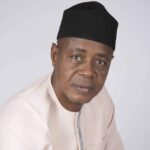Governor Uba Sani has presented a budget proposal of N790 billion for 2025, focusing on key sectors such as infrastructure, human capital development, security, and agriculture.
In his presentation at the Kaduna State House of Assembly on Monday, the governor explained that his administration adopted a conservative yet strategic approach to resource allocation, considering the current financial challenges.
The 2025 budget allocates N553 billion for capital expenditure and N237 billion for recurring expenditure.
According to Governor Uba Sani, “The capital allocation reflects our continued focus on infrastructure, particularly rural roads, healthcare facilities, education infrastructure, and housing projects. We have deliberately focused on projects that will have a lasting impact on the economic wellbeing of our citizens.”
He further highlighted that N206.6 billion, representing 26.14% of the total budget, has been allocated to education. This funding will go toward the construction of new schools, rehabilitation of existing ones, recruitment and capacity development of teachers, and provision of learning materials.
The health sector is allocated N127 billion (16.07% of the budget), which will be used to upgrade healthcare facilities, procure medical equipment, and expand mobile healthcare services to ensure quality healthcare is accessible to all communities.
For infrastructure, Governor Sani said N106 billion (13.14% of the budget) will be dedicated to completing ongoing road construction, rural electrification, water supply, and other public works across the state.
N74 billion (9.36% of the budget) will go toward agriculture, with investments in agricultural innovation, smallholder farmer support, agro-processing, and expanding irrigation projects.
Additionally, N9.8 billion (1.24% of the budget) has been earmarked for social welfare, which will cover the expansion of social safety nets. This includes support for the elderly, women, and children under the Ministry of Human Services and Social Development, as well as social intervention programs for the poor and vulnerable to be conducted by the newly created Ministry of Humanitarian Affairs.
Governor Uba Sani emphasised that the 2025 draft budget represents a bold commitment to the future of Kaduna State. He stated, “It is a reflection of our determination to drive inclusive development, create jobs, improve infrastructure, and invest in the people of Kaduna State. We remain steadfast in our resolve to build a state that is safe, prosperous, and equitable for all.”
The governor further explained that the budget process had been consultative, with wide engagement with the people of Kaduna State to ensure the budget reflected their aspirations and addressed their concerns.
He expressed gratitude to the legislators and stakeholders for their contributions, saying, “The feedback from the Town Hall meetings, engagements with civil society groups, and inputs from various sectors have been invaluable in shaping the framework of the 2025 draft budget.”
He urged the House of Assembly to provide the necessary support for the budget, promising to work together to turn the plans into reality. “The 2025 fiscal year will be a year of transformation, and with your cooperation, we shall continue to make Kaduna State a place where everyone has the opportunity to thrive,” he added.
Governor Uba Sani also highlighted his administration’s achievements in 2024 in areas such as safety and security, infrastructure upgrade, housing development, trade and investment, agriculture, human capital development, health, and social welfare.
On security, he noted that the government recruited and trained 7,000 personnel for the Kaduna Vigilance Service (KADVS) to enhance state security. He added, “We distributed 150 Hilux security vehicles and 500 patrol motorcycles to all security officers in the state. We also constructed the maiden Kaduna State Forensic Laboratory and Training Centre.”
“I was in Birnin Gwari on Thursday, 28th November 2028, to reopen the famous and strategic Kara Livestock Market, thus signalling the commencement of commercial activities. The long-abandoned Birnin Gwari Road is now back to life,” he added.
On addressing the housing deficit, Governor Uba Sani revealed that the state is collaborating with both local and international investors. He said, “We have successfully reduced the housing deficit in the state through the development of 300 housing units at Millennium City, Kaduna.”
He also disclosed that the first phase of mass housing for the less privileged at the Kaduna Economic City is nearly completed, with about 95% of the project finished. This initiative is a partnership between the Kaduna State Government and Qatar Charity.
Governor Uba Sani further mentioned that his administration has attracted over $503 million in actualised investments to the state. Notable among these are four Foreign Direct Investments (FDIs), including Sunagrow International Oil Ltd for the construction of a $50 million soybean oil refining plant, StarAgric West Africa Ltd for the Kaduna Agri-Market System Initiative, the Qatar Sanabil Kaduna Economic City Project, and Ming Xing Lithium Processing Plant.
“We are finalising arrangements for the commencement of the Special Agricultural Processing Zone (SAPZ), a partnership between the Kaduna State Government and the African Development Bank (AfDB),” the Governor added.
Under the Kaduna State Enterprise Development Agency (KADEDA), the government has supported 8,649 nano and micro businesses with grants to expand their operations. These grants ranged from N50,000 to N300,000. The A Kori Talauchi program, led by the Kaduna State Government, empowered 4,912 underserved women across the state.
Governor Uba Sani also shared details of the state’s social support initiatives, including the Second Phase of Palliatives Distribution, where 128 trucks of rice and maize were distributed, along with N4.2 billion in cash to the less privileged. The government also spent N6.6 billion on pensions, gratuities, and death benefits and provided relief materials to over 40,000 internally displaced persons across the state through the Kaduna State Emergency Management Agency (KADSEMA).
Furthermore, the governor emphasised the training of 500 women, youths, and food vendors in briquette making to reduce reliance on charcoal and other carbon-based fuels.






